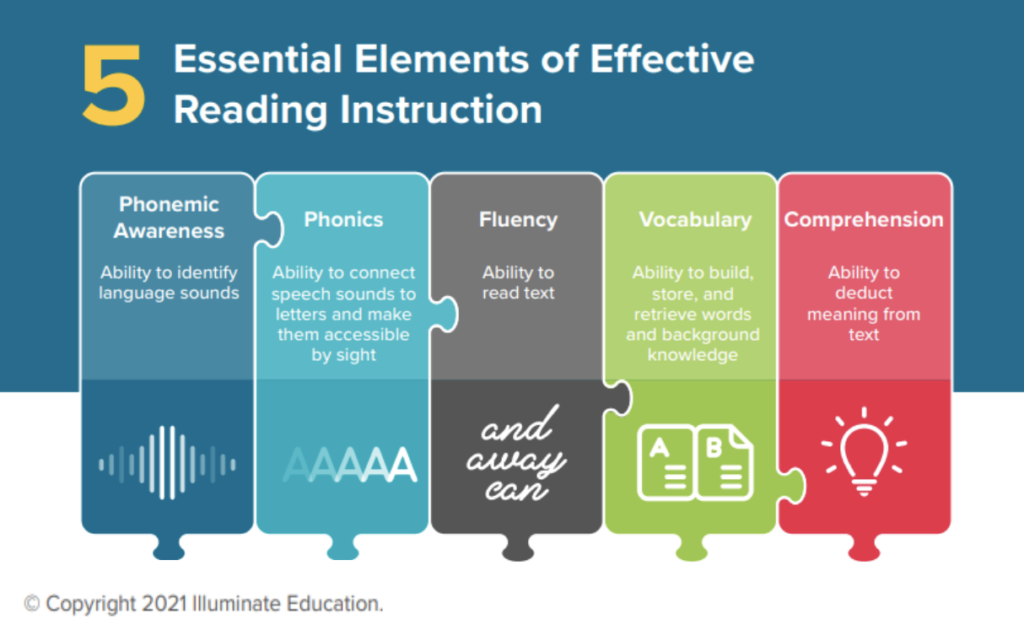It is hardly a secret that student literacy is tied to higher academic achievement across all subjects. And yet, unlike spoken language, humans are not neurologically primed to decipher the written word. The “reading brain” has to create its own circuits, cobbling together preexisting parts related to vision, language, affect, and cognition. Direct instruction is needed to build this complex circuitry, and unsurprisingly, a large number of students experience reading difficulties. Over the last few decades, the educational community has begun embracing empirically-derived teaching methods, or the “science of reading,” to improve literacy outcomes.
Okay, so what exactly is the “science of reading”?
The “science of reading” refers to the accumulated body of multidisciplinary research on how humans learn to read. Experts from fields such as psychology, neuroscience, linguistics, education, and many others offer insights and analysis to guide understanding and cultivate successful teaching practices.
Evidence from this compendium of research has established five major elements (sometimes referred to as “the big five”) tied to reading competency.

Big Five big takeaways?
- Phonemic awareness is a prerequisite for reading.
- Foundational knowledge, rooted in phonemic awareness and phonics, enables students to reach higher levels of proficiency.
- Comprehension is the ultimate goal; students utilize multiple complex skills in tandem to read successfully.
Got it! What are some general guidelines for effective teaching?
While many factors can influence reading and writing progression, high-quality instruction remains “the best weapon” against undeveloped reading abilities, according to the National Research Council. Research overwhelmingly supports the use of targeted, structured teaching methods for all students. Other major guidelines include:
- Routinely assessing and monitoring student progress.
- Using collected data and observation to provide instruction suited to each student’s individual needs and abilities.
- Teaching on multiple levels—modeling skills for students, guiding their practice, supporting skill application, and finally, giving independent practice.
- Introducing concepts systematically, mindfully, and in ways that promote engagement—make it fun!
How can Mundo help?
Mundo works closely with its community partners to design and implement evidenced-based literacy programs throughout Los Angeles. In addition to in-classroom support, Mundo is offering Jumpstart Reading!, a 6-8 week program centered on individualized skill-building. If you would like to schedule a free diagnostic or explore other options, please contact us for more information.


